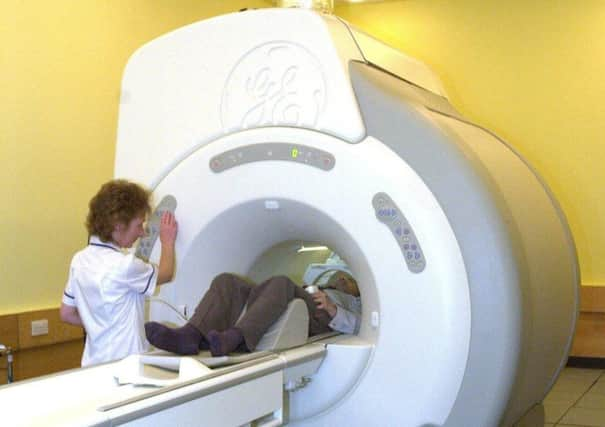Innovative programmes provide positive slant on hospital appointments


Edinburgh Children’s Hospital Charity exists to transform the experiences of children and young people in hospital; using engaging techniques to connect children positively with their treatment is just one of the ways we do this.
For both children and parents, attending the hospital for an imaging examination, for example, can be an intimidating prospect. Seemingly trivial details such as whether the ultrasound gel will be cold can be a cause of anxiety to young patients. When describing an x-ray to a child, some mistake this as having a camera travel inside their body.
Advertisement
Hide AdAdvertisement
Hide AdWhen you’re small, pieces of equipment can seem huge and others, such as a MRI scanner, can be very noisy. Added to all of this, many children and young people fear needles and some worry when having their blood taken that all the blood is being removed from their body. And when a child or young person is anxious and upset, their parents often feel the same.
At ECHC, we work closely with the teams at the Royal Hospital for Sick Children to devise engaging ways to make the hospital experience more positive for all. The more relaxed and happy the child, the more likely they are to attend appointments and engage with treatment.
ECHC has committed to fund an innovative arts programme involving long and short term arts residencies, participatory activities, live performances and commissions. ECHC’s arts programme provides art interventions at paediatric healthcare settings across Edinburgh and the Lothians.
We work with babies, children and young people aged between 0-16 years, as well as their families. This requires a diverse programme of events able to capture the interest of a teenage boy as easily as a girl of five.
Many of our arts projects are linked with hospital departments, for example dance work alongside physiotherapy. As one mum said: “It was amazing to see the movements that he achieved when he was dancing. He seemed to be much more motivated when he didn’t realise he was doing the physio exercises we’d been trying to get him to do”.
Another project is using 3D printing sculpture within the ear reconstruction service. The artist and clinician work closely together to devise sessions with patients’ rehabilitation needs in mind. We aim to give the children something fun to look forward to while contributing towards achieving recovery goals.
Technology plays a key role with everything from interactive games which encourage movement to 3DTV assisting in pre-op relaxation. Recently a partnership with Specsavers, bringing Virtual Reality to the hospital, led one initially nervous boy to engage confidently with his treatment. He explained: “I’ve just been flying around inside a volcano. I can do anything now Dad.”
Roslyn Neely is chief executive, Edinburgh Children’s Hospital Charity www.echcharity.org